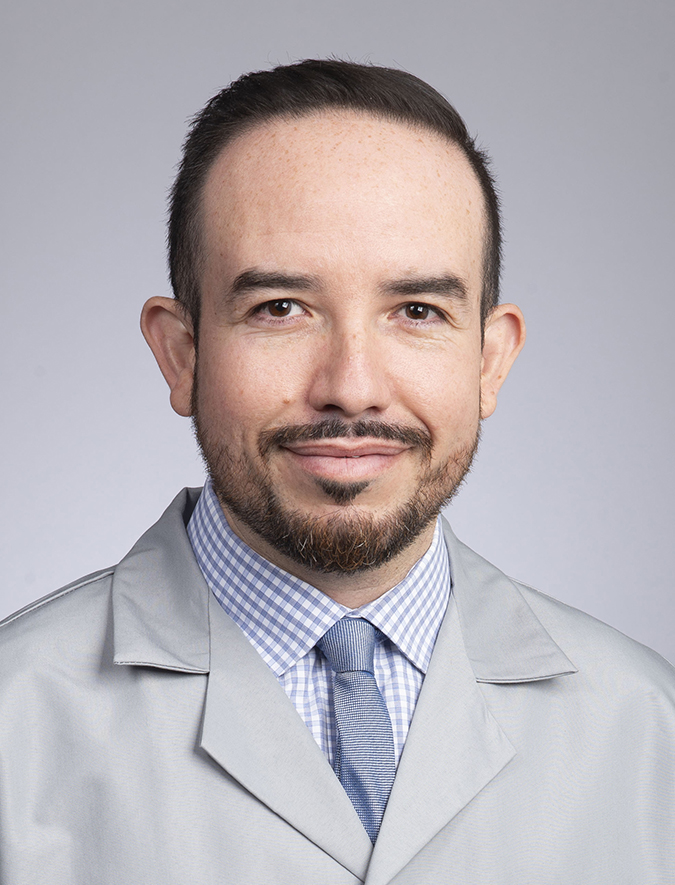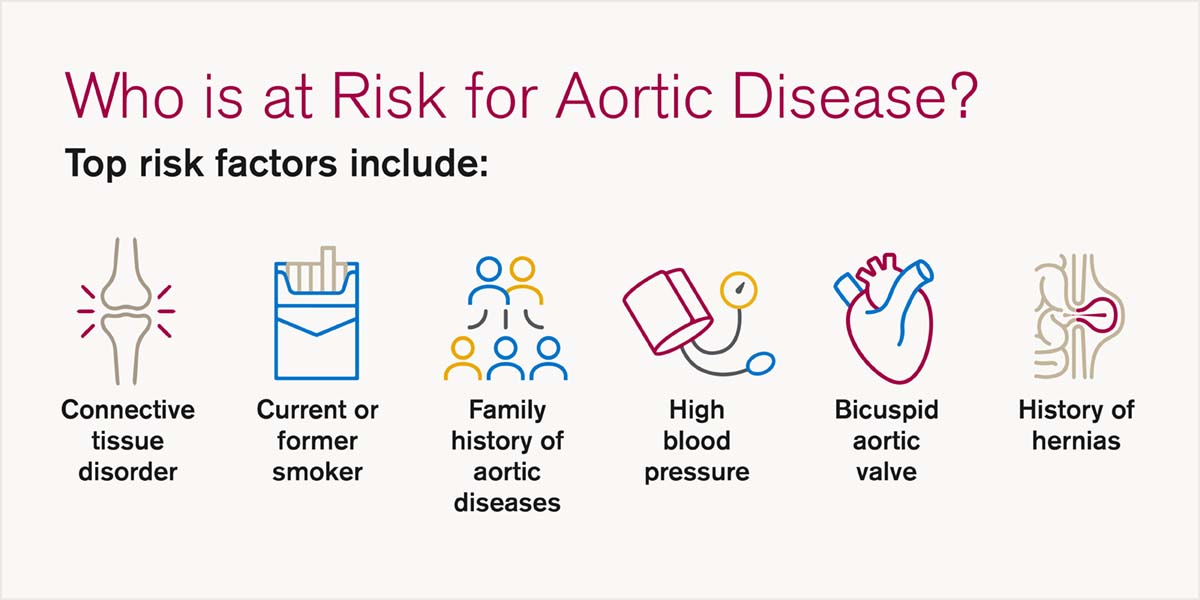 By Manuel Rojo, MD, Cardiothoracic and Vascular Surgeon
By Manuel Rojo, MD, Cardiothoracic and Vascular Surgeon
The aorta is the largest artery in the body and carries oxygen-rich blood to vital organs throughout the body. As blood is sent from the heart through the aortic valve, it travels through the aorta, supplying the brain and arms, then curving around the aortic arch to supply the lower body. As the largest artery in the body, the aorta can be more than an inch wide in some areas and consists of the inner, middle, and outer layer.
The importance of the aorta cannot be understated. However, this means that when a problem occurs with the aorta, the heart and the blood supply of the entire body can be at risk. We spoke with Dr. Manuel Rojo, a Cardiothoracic and Vascular Surgeon at Loyola Medicine, to learn about the various conditions that can affect the aorta.
"Unfortunately, aortic disease happens to people of all ages. It can happen to young people with connective tissue disorder, bicuspid aortic valves, and poor blood pressure control. It can also happen in older patients with risk factors such as smoking and family history of aortic disease. Aortic disease is a life-threatening disease that should always be taken seriously," says Dr. Rojo.

What is an aortic condition and how is it diagnosed?
The aorta is vulnerable to a number of life-threatening disorders and conditions. There are many imaging modalities used in the diagnosis and surveillance of aortic disease. They are all generally quick and painless. These tests include CT scan, echocardiogram, and MRI. Through these tests doctors diagnose aortic diseases and the tests are used to plan the surgeries to treat these problems. The tests are also used long term to monitor the progression of the disease. "Many people might not even know that they have an aortic problem until serious symptoms start to appear. While a diagnosis can be scary, we want patients to know that Loyola Medicine has an advanced team of experts that have all the tools available to best treat these problems," says Dr. Rojo.
For many patients, a diagnosis of an aortic condition can come as a surprise. When the disease runs in families, it is important for family members to be tested to determine if they also have an aortic condition. No matter your situation, it's normal to be anxious if you receive a diagnosis of an aortic disorder. However, learning about your condition and speaking with your doctor can help alleviate those fears and replace them with confidence about your treatment.
What is an aortic aneurysm?
One of the more well-known aortic conditions is an aortic aneurysm. When balloon-like bulges form in your aorta, you may be diagnosed with an aneurysm. The aorta has a thick wall that can withstand a normal amount of blood pressure. However, very high blood pressure or certain medical problems can weaken the aortic wall, causing an aneurysm.
This condition is serious because if an aneurysm grows large enough, it can burst or the wall of the aorta can tear, which can be life-threatening. An early diagnosis may allow doctors to treat the aneurysm effectively before it becomes a life-threatening emergency.
What is aortic valvular disease?
Another aortic condition is aortic valvular disease. To allow blood to flow properly between the heart and the aorta, a valve acts as a gateway between the two. When this valve does not work properly, the patient is diagnosed with aortic valvular disease. When the aortic valve is damaged, blood can either be blocked or leak, causing heart and circulation problems.
This disease can occur for a number of reasons. Some infants are born with a defect, but the aortic valve degrades with age, meaning older patients have a higher risk of being diagnosed. If you suffer from breathing difficulties, fainting episodes, chest pain, heart palpitations, or know that you have a heart murmur, it's possible that you may have aortic valvular disease.
What is aortic arch syndrome?
Aortic arch syndrome refers to any structural problems involving the arch of the aorta. The arch is the top part of the aorta, which makes a curve as it carries blood away from the heart. Like most problems of the aorta, diseases involving the aortic arch can be caused by high blood pressure, smoking, genetics, and trauma.
There are various types of aortic arch syndromes that can manifest as different symptoms, depending on which branch is affected and whether there is a tear or aneurysm of the arch. These symptoms can include stroke, problems swallowing, dizziness, numbness or weakness of the arms, and more. Surgery is often the main treatment to correct the underlying causes. This highly complex surgery may require the heart-lung bypass machine. Part of this surgery may also involve cooling the body to reduce the demands of vital organs and stopping the circulation.
"Treating any condition of the aortic arch is one of the more challenging surgeries that we perform because there are high stakes and risks involved. This surgery is a huge challenge because there are important branches that provide circulation to the brain, arms, and other parts of the body. These branches make the treatment of this area complicated because they put patients at risk for stroke when treated," says Dr. Rojo. "The next frontier for cardiovascular and vascular surgery is going to be treating the arch more effectively. At Loyola, we have several surgeons that specialize in the treatment of aortic arch disorders and can provide both open surgery options and minimally invasive endovascular options. When patients come to Loyola they get a multidisciplinary approach that is balanced and state of the art." says Dr. Rojo.
How is Loyola Medicine advancing the treatment of aortic conditions?
Loyola Medicine's Center for Aortic Disease is well-known for the innovative treatment of patients affected by aortic conditions, disorders and disease. Our goal is to provide individualized treatment for every patient. That's why our providers take on the most complicated cases and have the skills to perform even the most difficult surgeries.
The Center for Aortic Disease not only excels in complex surgical treatments, but also provides genetic testing for aortic diseases. If a patient has hereditable thoracic aortic disease (HTAD), they are at higher risk of multiple aortic conditions, including aneurysms and aortic dissection. As the name suggests, the genes that cause these diseases can be passed down from one generation to the next.
"We're at the forefront of having the ability to do genetic testing for patients if they come in with a dissection or an aneurysm. We can identify if there's any genes that might have predisposed them to having this problem," says Dr. Rojo.
This testing not only impacts the patient, but their family members as well. They can undergo genetic testing to see if they have this mutated gene. If they are positive, the Center for Aortic Disease can begin screening for abnormal blood vessels, potentially saving their lives.
"We have that continuity in a family line, and that's something that's becoming more and more common. People are finding out about their genetic history not just for treatment, but prevention. If they have a genetic issue, we can prophylactically treat their families, their kids, grandkids, anyone."
Manuel Rojo, MD, is a cardiothoracic and vascular surgeon at Loyola Medicine, specializing in aortic disease. He completed his vascular residency at the Houston Methodist Hospital before completing a thoracic surgery fellowship at Loyola University Medical Center.
Dr. Rojo became a physician because he wanted to help alleviate suffering and have a part in improving the quality and extending the length of people’s lives. Since he was young he’s loved working with his hands and as a child would help his father fix cars. This led him to become a surgeon and help those with cardiovascular disease.
Book an appointment today to see Dr. Rojo or another Loyola physician by self-scheduling an in-person or virtual appointment using myLoyola.

